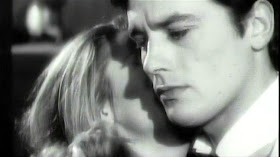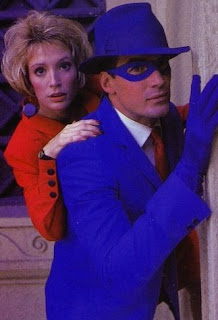 |
| Fonda and Delon share a moment in Joy House |
JOY HOUSE (aka Les felins/1964). Director: Rene Clement.
Marc (Alain Delon) is a handsome gigolo who is on the run from hit men hired by the husband of his latest conquest. On the riviera he winds up becoming chauffeur for a strange household consisting of a wealthy widow, Barbara (Lola Albright), and her cousin, Melinda (Jane Fonda). In the meantime, a strange figure is watching the goings-on from hidden rooms behind the walls. This may sound intriguing, but frankly with that premise and this cast Joy House should have been a lot sexier and much more entertaining. This was taken from a Charles Williams novel or screenplay which was probably more on the mark. Delon plays his part in just the right note; the women are good but less effective. The movie is at times more confusing and irritating than genuinely suspenseful.
Verdict: A bit dull despite everything. **.














 CHARLIE CHAN'S SECRET (1936). Director: Gordon Wiles.
CHARLIE CHAN'S SECRET (1936). Director: Gordon Wiles.
